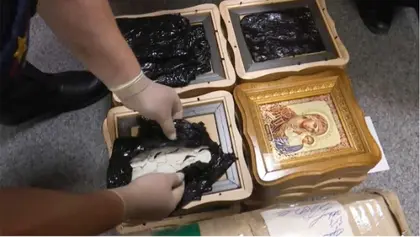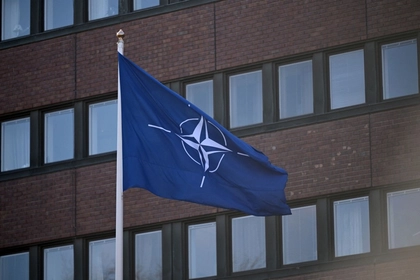The FSB press service said on Tuesday, April 2, that its agents working with Russia’s Federal Customs Service had stopped a truck ostensibly transporting religious icons and church paraphernalia at the Ubylinka border crossing on the Latvian-Russian border.
Having inspected the cargo it was reported that the consignment concealed explosives and components sufficient to manufacture almost 30 improvised explosive devices (IEDs).
JOIN US ON TELEGRAM
Follow our coverage of the war on the @Kyivpost_official.
The haul included 70 kilograms of RDX (Hexogen) based plastic explosives, 91 electric detonators, batteries, printed circuit boards fitted with a SIM card slot as well as parts of an RPG-7 rocket grenade launcher.
The FSB spokesman said the plastic explosives recovered was of foreign manufacture without identifying the country of origin.
Paperwork taken with the cargo indicated that it had originated from Ukraine and had passed through Romania, Hungary, Slovakia, Poland, Lithuania, and Latvia en-route to Russia.
The driver of the vehicle was arrested and is reported to have said that he took possession of the consignment at a warehouse in Romania, checked it and finding nothing suspicious agreed to carry it to Russia. He said there had been no problems with customs checks along the route.
The Department Head of the Interior Ministry’s Regional Forensic Center, Dmitry Belotserkovsky, told TASS that the icons contained “Hexogen, a plastic explosive of high explosive power was found behind the icons. This explosive is 50 percent more powerful than TNT. The weight of the seized explosive is enough to blow up a five-story apartment block.”

Russian UAVs Again Enter NATO Airspace During Drone Attack on Ukraine
The FSB spokesperson said that a criminal probe under part 2, article 226.1 of Russia’s Criminal Code into a “conspiracy to illegally transport explosives and explosive devices across the Russian border.” Conviction for the offence is punishable by up to ten years in prison.
The FSB would not be drawn on who was suspected of arranging the transportation of the devices and what were likely targets for the IEDs. The FSB said that all those involved in the plot, including foreign nationals, would be hunted down and prosecuted to the full extent of Russian law.
You can also highlight the text and press Ctrl + Enter






